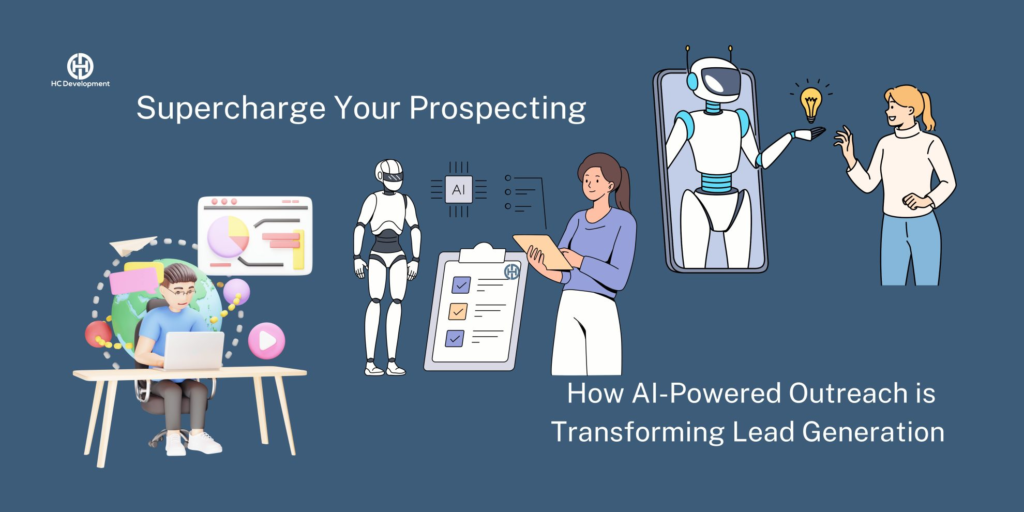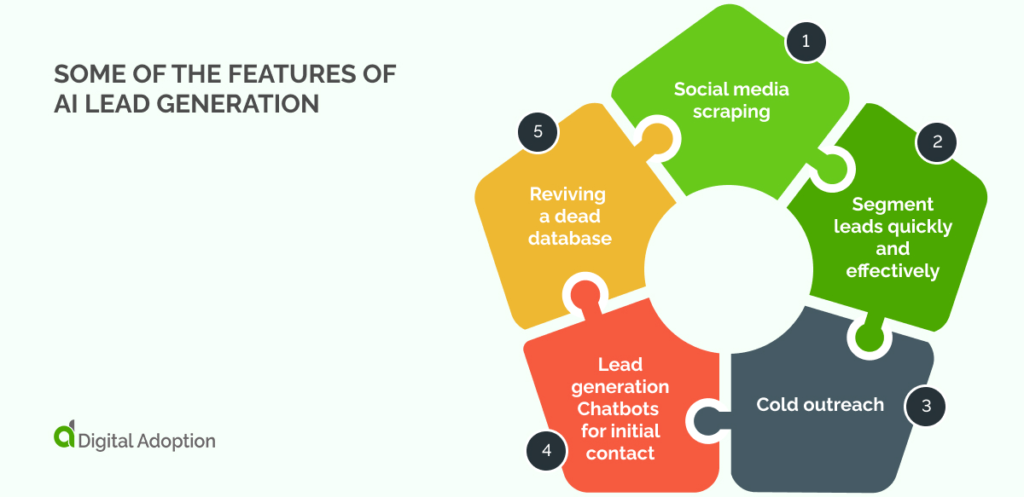14 Best AI Tools for Startups That Could Make or Break You
AI tools for startups are increasingly indispensable for scaling effectively. At first, people thought running a small business was all about hustle and instinct.
They’ve since realized that AI can streamline repetitive work, provide insights you didn’t even know you needed, and free your team to focus on creative, high-impact tasks.
Have you ever wondered why some startups scale effortlessly while others struggle to keep pace?
Often, it’s the tools behind the scenes that make the difference.
Below, we explore 14 AI-powered tools for startups and small businesses—organized by practical workflow, from customer support to ideation to scaling operations.
Understanding AI Tools for Startups
Growing a startup is a journey that demands both focus and clarity.
AI tools can help—but only when applied thoughtfully.
We begin with task and project management because teams function best when responsibilities are clear and deadlines are visible.
Structure matters.
Next, customer support and success take priority. Happy clients stay longer. They also recommend your business.
Strong relationships fuel growth.
Marketing and outreach follow, creating awareness and attracting potential customers.
A steady pipeline ensures your sales team has opportunities to convert.
Sales-focused tools then turn interest into revenue, providing actionable insights and automating repetitive tasks.
Focus on the right prospects.
Finally, ideation and knowledge management keep insights, documents, and team learnings organized and accessible.
Continuous innovation becomes possible.
Teams make smarter decisions.
Stage 1: Task and Project Management

Source: Roland Wanner
Efficiency is the backbone of any startup. Even the most innovative ideas can fail without proper execution.
AI-driven project tools help teams stay aligned, track progress, and meet deadlines.
1. Asana — Smarter Project Planning
Asana leverages AI to suggest task assignments, manage workloads, and generate automated reports. Smart templates reduce setup time and streamline project tracking.
Why it works for startups: Keeps teams organized, helps prioritize tasks, and supports scaling without chaos.
2. Monday.com — Visual Workflow Control
Monday.com offers AI-powered automations, notifications, and custom dashboards that highlight bottlenecks and track team performance.
Why it works for startups: Flexible and adaptable, it grows with your business while keeping work transparent.
Stage 2: Customer Support and Success

Source: Map Communications
Customer loyalty can make or break a startup.
AI tools in support help deliver responsive, personalized service without overwhelming small teams.
3. Zendesk — Efficient Support, Smarter Decisions
Zendesk categorizes tickets, suggests responses, and tracks trends to improve customer service. Analytics guide strategic improvements.
Why it works for startups: Enterprise-grade support capabilities in a user-friendly, scalable platform.
4. Intercom — Personalized Messaging at Scale
Intercom uses AI chatbots and automated workflows to engage customers 24/7, segmenting users for targeted messaging.
Why it works for startups: Enables small teams to deliver proactive support with a personal touch.
5. Freshdesk — AI That Learns and Adapts
Freddy AI suggests responses, prioritizes tickets, and spots trends. Multi-channel integration ensures a seamless support experience.
Why it works for startups: Keeps satisfaction high without expanding your support team.
Stage 3: Marketing and Outreach

Source: HC Development
Marketing isn’t just posting content—it’s connecting, persuading, and converting.
AI tools help startups produce consistent, high-quality materials efficiently.
6. Canva — Design Without Limits
Canva’s AI assists with Magic Resize, layout suggestions, and text-to-image generation. Visuals are polished and professional, even without design expertise.
Why it works for startups: Templates and AI guidance allow small teams to create marketing collateral quickly.
7. HubSpot — Inbound Marketing Engine
HubSpot leverages AI for lead scoring, content suggestions, and personalized email campaigns. The free tier is powerful for early-stage startups.
Why it works for startups: Centralizes marketing efforts and boosts conversion rates while saving time.
8. Jasper — Copywriting at Scale
Jasper generates SEO-optimized blog posts, ad copy, and social media content. It adapts tone and style to suit your audience.
Why it works for startups: Scale content production without hiring a large marketing team.
Stage 4: Sales and Lead Management

Source: Digital Adoption
Converting leads into paying customers is where growth truly happens.
AI enhances prediction, automation, and insight along the sales journey.
9. Chorus.ai — Learn from Every Call
Chorus.ai records calls, analyzes sentiment, and provides actionable coaching tips.
Why it works for startups: Every conversation becomes a learning opportunity, improving sales skills quickly.
10. HubSpot Sales Hub — Automate Your Outreach
AI automates follow-ups, meeting scheduling, and website lead engagement via chatbots.
Why it works for startups: Small teams save time on repetitive tasks and focus on closing deals.
11. Salesforce Einstein — Predictive CRM Intelligence
Einstein predicts high-conversion leads, automates data entry, and recommends next steps based on historical trends.
Why it works for startups: Offers enterprise-level CRM intelligence for startups without a large sales team.
Stage 5: Ideation and Knowledge Management
Ideas are the seed of innovation. AI helps teams capture, organize, and share knowledge effectively.
12. Kipwise — Smarter Knowledge Sharing
Kipwise suggests relevant internal documents in Slack and other chat apps, reducing repetitive questions. Built-in workflows maintain content accuracy.
Why it works for startups: Even tiny teams can maintain a searchable knowledge base without hiring a dedicated manager.
13. Confluence by Atlassian — Documenting with Precision
Confluence links project documentation with active Jira tasks. AI-powered search delivers contextual results, while templates standardize workflows.
Why it works for startups: Ideal for agile teams managing complex projects, ensuring critical knowledge is always accessible.
14. Notion — The All-in-One Workspace
Notion combines notes, databases, and collaboration tools. AI assists with drafting, summarizing, and brainstorming ideas.
Why it works for startups: Flexible, intuitive, and powerful for connecting tasks, projects, and content seamlessly.
Use Cases of AI Tools for Startups
| Stage | AI Tool | Use Case |
|---|---|---|
| Project Management | Asana | Automates task assignments, generates reports, and streamlines project tracking. |
| Monday.com | Offers AI-powered automations, notifications, and custom dashboards to enhance workflow control. | |
| Customer Support | Zendesk | Categorizes tickets, suggests responses, and tracks trends to improve customer service. |
| Intercom | Utilizes AI chatbots and automated workflows to engage customers 24/7, segmenting users for targeted messaging. | |
| Freshdesk | Freddy AI suggests responses, prioritizes tickets, and spots trends, ensuring a seamless support experience. | |
| Marketing & Outreach | Canva | Assists with Magic Resize, layout suggestions, and text-to-image generation for polished visuals. |
| HubSpot | Leverages AI for lead scoring, content suggestions, and personalized email campaigns. | |
| Jasper | Generates SEO-optimized blog posts, ad copy, and social media content, adapting tone and style to suit the audience. | |
| Sales & Lead Management | Chorus.ai | Records calls, analyzes sentiment, and provides actionable coaching tips to improve sales skills. |
| HubSpot Sales Hub | Automates follow-ups, meeting scheduling, and website lead engagement via chatbots. | |
| Salesforce Einstein | Predicts high-conversion leads, automates data entry, and recommends next steps based on historical trends. | |
| Ideation & Knowledge Management | Kipwise | Suggests relevant internal documents in Slack and other chat apps, reducing repetitive questions. |
| Confluence | Links project documentation with active Jira tasks, delivering contextual results through AI-powered search. | |
| Notion | Combines notes, databases, and collaboration tools, with AI assisting in drafting, summarizing, and brainstorming ideas. |
Practical Tips for Evaluating AI Tools
Even the best AI tools for startups are useless if chosen poorly.
You might be wondering, how do I pick the right ones without wasting time or money?
After guiding startups for over 15 years, I’ve learned that thoughtful selection makes all the difference.
Integration Matters
Make sure the tools sync seamlessly with your CRM, marketing platforms, and project management systems.
A disconnected workflow can create more headaches than it solves.
Scalability is Key
Early-stage tools may feel perfect now, but will they grow with your startup?
Choose solutions that expand effortlessly as your team and processes evolve.
Adoption Depends on Usability
Even a powerful tool is useless if your team struggles to use it.
Pick platforms that are intuitive, offer guidance, and require minimal training.
Security Can’t Be an Afterthought
Verify that the tools follow industry-standard encryption and compliance protocols.
Protecting sensitive data isn’t optional—it’s a trust-building requirement.
Iteration Drives Success
Don’t set and forget. Reassess performance regularly.
Upgrade, replace, or adjust tools as your needs change.
AI as a Dynamic Teammate
Think of AI not as a plug-and-play solution but as a dynamic teammate.
At first, I thought a single tool could fix everything.
I’ve since realized that it’s the right combination, aligned with your workflow, team, and goals, that creates real impact.
Frequently Asked Questions
Q1: Which AI tools should I explore first for my startup?
Check the table above for a clear breakdown of AI tools across project management, customer support, marketing, sales, and knowledge management. It helps you choose the right tools based on stage, team size, and immediate needs.
Q2: How much should a startup budget for AI tools?
Many solutions start under $50/month, making them accessible for early-stage startups. As your team sees measurable ROI, you can expand to premium features, more seats, or enterprise versions to scale operations effectively.
Q3: Do AI tools require technical skills?
Most AI platforms are low-code or no-code, designed for non-technical users. You don’t need to be a programmer; intuitive dashboards, wizards, and AI assistants handle setup and automation seamlessly, reducing onboarding friction.
Q4: Which tools should startups implement first?
Marketing and CRM tools deliver early wins with measurable impact. They help generate leads, automate outreach, and track engagement, giving small teams quick results that justify further AI adoption across operations.
Q5: Can AI integrate with existing software?
Yes. Modern AI tools offer APIs, plugins, and integrations with popular apps like Slack, Gmail, and Salesforce. This ensures your workflows remain connected, avoids duplication, and leverages your existing tech stack efficiently.
Q6: Are AI tools secure for startups?
Reputable AI platforms follow GDPR, HIPAA, and industry-standard encryption protocols. Data is often anonymized and access-controlled, giving startups confidence that sensitive customer or internal information is handled securely.
Related Posts
22 Breakthrough AI HR Tools You’ll Regret Ignoring
21 AI Tools for Doctors You’ll Regret Ignoring in 2025
Why AI Tools for Studying Are the Student’s New Superpower
Autonomous AI Agents 2025: Redefining Digital Workflows
Conclusion
AI tools for startups are no longer optional—they’re the silent partners that determine whether your business thrives or stalls.
From managing projects with Asana to scaling operations with Monday.com, these 14 tools cover every stage of the startup journey, shuffled here for a fresh perspective.
Embrace AI deliberately.
Select tools that fit your workflow, integrate smoothly, and empower your team to focus on innovation.
The right combination transforms repetitive tasks into insights, letting your startup scale smarter, faster, and more confidently.
Have you identified which part of your workflow could benefit most from AI today?
Start there. Your startup’s future may depend on it.

